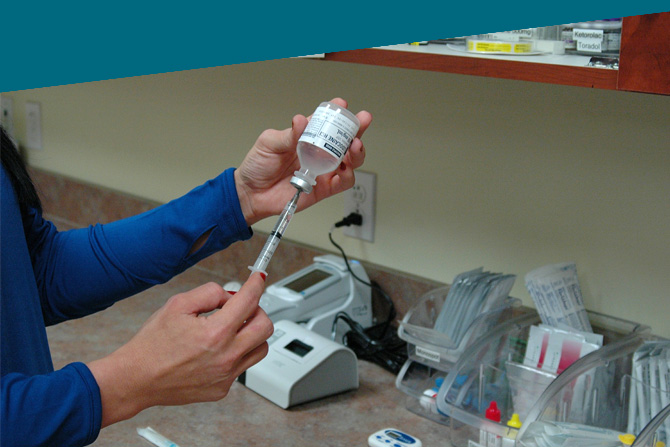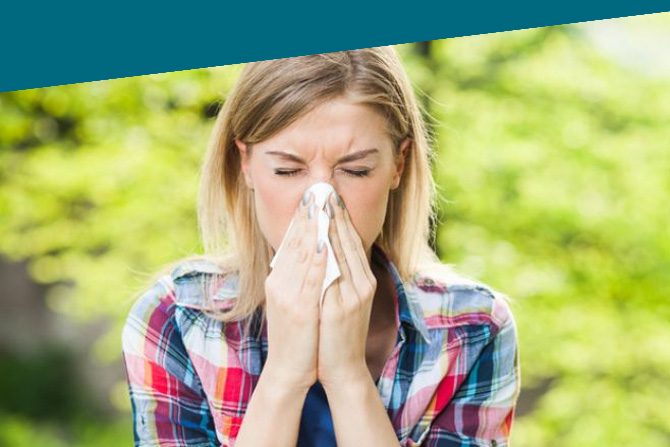Measles: What You Need to Know
June 17, 2019

Measles (or rubeola) is a childhood disease that, until recently, was largely a concern of the past. But recent controversies regarding immunizations have brought it to the fore. And that includes an increase in the number of people infected.
According to the Centers for Disease Control and Prevention, 1,022 individual cases of measles have been confirmed in 28 states from Jan. 1 to June 6 of this year. The agency further states that this figure represents the greatest number of cases reported in the U.S. since 1992 and since measles was declared eliminated in 2000.
It’s also still prevalent in many other parts of the world. Which means unvaccinated folks traveling outside the U.S. can be exposed, and visitors from other regions can bring it here.
So, regardless of your position on vaccination, it’s a good idea to become familiar with the disease, its symptoms, and what to do if you think you or your child has become infected.
Some Facts About Measles
Here are some basic points on what to know about measles.
- Measles is on the rise because the population of kids not being vaccinated has increased.
- This in turn exposes other people to the disease who may be unable to receive immunization or whose immune systems have been compromised.
- Of all known infections, it’s one of the most contagious. While in some cases it simply causes a great deal of discomfort, it can also be deadly.
- Is measles contagious? Yes. It’s transmitted via moisture from breathing, can remain in the air for two hours (even after an infected person has left the area), and can infect 90% of susceptible people exposed to it.
- Although usually mild, it can have severe complications for those with weakened immune systems. Complications range from ear infections to pneumonia or even inflammation of the heart, deafness and brain damage.
- There are no antiviral medications for measles. However, the symptoms can be treated with the appropriate measures.
Symptoms and Progression
Let’s take a look at the symptoms of measles. Any adult who got measles as a child or who has seen a youngster with the disease will recognize the set of symptoms it presents. Those include a red and spotted rash, fever, cough, red eyes and runny nose.
In terms of the progression of the disease, there are three stages: an incubation period of about 10 days; a prodromal period where all the symptoms except the rash appear; then the rash. The fever can typically run as high as 104-105 degrees.
The contagious period for measles runs from four days before the rash starts until about four days after it appears.
Vaccination Guidelines
The measles vaccine is one that uses a weakened form of the virus. This means that a very small, safe amount is used. The immune system then learns to recognize and attack it later in life. For children with a normal immune system, it will not actually cause the disease.
Vaccination results in lasting protection for 95% of children who get one dose and for 99% who get the second one. It’s typically administered when a child is between 12 and 15 months old and again at 4 to 6 years of age. In cases where potential exposure to the disease may be high, the second dose can be administered as quickly as one month after the first one. Even infants between 6 and 12 months old can receive a first dose, but two more are recommended thereafter.
There are concerns among the public about the potential side effects of measles vaccination. However, it is quite safe. Some kids, about 10%, may have a fever for several days. Others, less than 10%, may develop a rash for a few hours or a couple of days. In very rare situations, kids with a predisposition may experience fever-induced seizures. Fortunately, scientific research clearly shows that vaccination does not lead to autism or other similar conditions.
For people who have not been vaccinated, an immune serum globulin can be used if it’s administered within five to six day of exposure. However, while it can be almost 100% effective, it’s a temporary fix that generally lasts for no more than a couple months.
Be Prepared
Now that measles is on the rise, it’s important to be aware of the impact it can have. Speaking with your family doctor is an important first step. Be aware of any cases reported in your locale or in areas where you plan to travel. And, of course, watch out for symptoms if your children have not received vaccination. Hopefully, the disease will retreat into the shadows once again.










